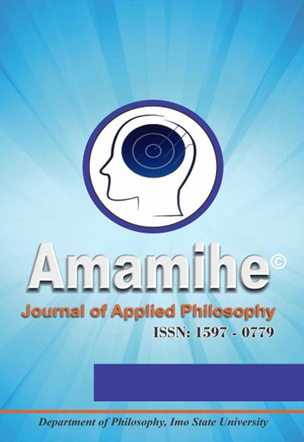
Vol. 22 No. 6, 2024
ABSTRACT
This study examines a comparative analysis of Akan and Yoruba concepts of destiny, exploring how each culture's idea of destiny shapes the individual's purpose, identity and moral accountability. Destiny, as conceptualized by Akan of Ghana (Nkrabea) and Yoruba of Nigeria (Ayanmo or Ori), shapes individual identity, purpose and ethical life within each community. In Akan thought, destiny is selected by one's Okra (soul) with the guidance of the Supreme Being (Nyame), and while it provides a preordained path, personal choices and community support can influence outcomes, balancing determinism and morality. For the Yoruba, destiny is tied to Ori (inner spiritual self), chosen before birth and considered central to life's purpose. The Yoruba view emphasizes both divine influence and the necessity of wisdom and moral conduct to achieve one's potential. This research aims to attempt a comparative analysis of Akan and Yoruba concepts of destiny in order to grasp the similarities as well as the differences that exist between these two tribe in their conception of destiny. To do this successful, the research adopts the expository and analytical methods of philosophical enquiry in its discourse.
